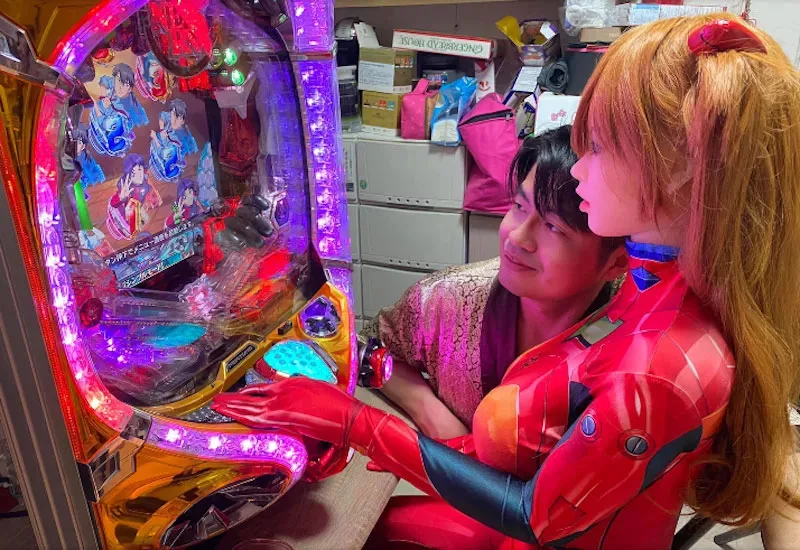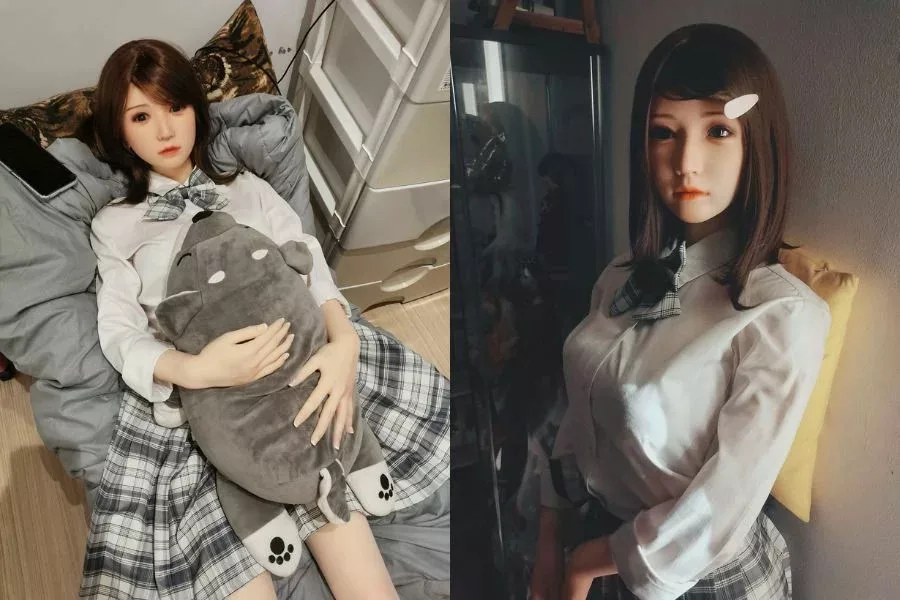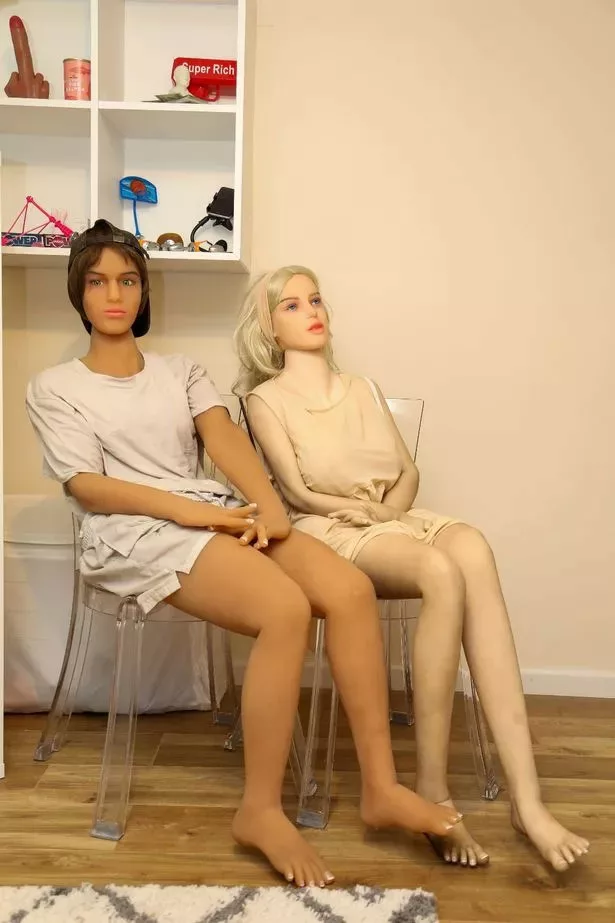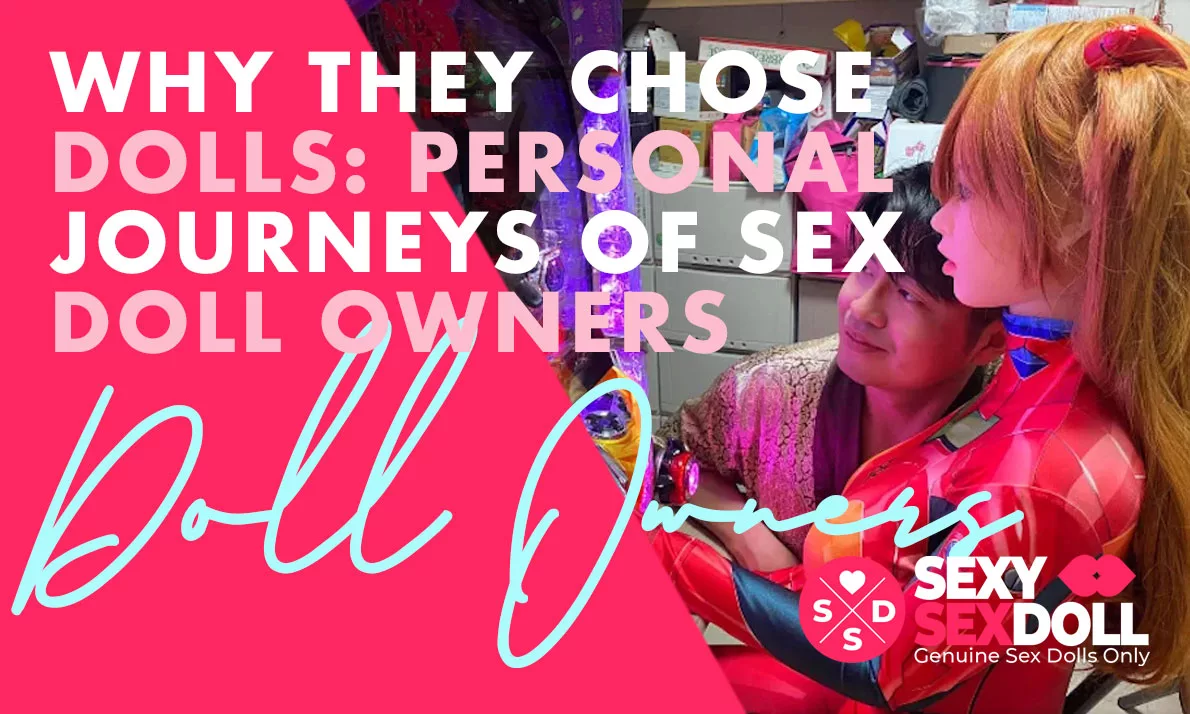I remember the first time I heard about sex dolls. Like many people, I was skeptical, even judgmental, influenced by the culture I grew up in. To me, the idea seemed straight out of a bad sci-fi movie – artificial companions, lifeless forms, replacing real relationships. Fast forward a few years, and what was once a topic of ridicule has slowly evolved into a serious conversation. But it wasn’t until I started reading personal stories from sex doll owners that my perspective shifted entirely. These stories are far from simple or one-dimensional. Behind every doll is a unique, deeply human narrative—stories of connection, loneliness, companionship, and self-discovery.
In this article, we’ll explore the emotional, social, and practical reasons why people choose to own sex dolls. With real insights drawn from these journeys, we’ll dive into a world that’s more complex than it seems. You might even find yourself questioning the boundaries of relationships as we know them.
Case Study 1: Tse Tin Wing’s Journey
Tse Tin Wing’s story is one that defies conventional expectations of relationships and love. At 36 years old, lives in Hong Kong with his parents and his “girlfriend”—a life-sized silicone doll he affectionately calls Mochi. For some, this arrangement might seem perplexing or even eccentric, but for Tse, it represents stability, companionship, and fulfillment in ways that human relationships couldn’t.
The Beginning of Tse’s Fascination
Tse’s journey into the world of sex dolls didn’t start overnight. Like many, his fascination with these lifelike figures began gradually. In 2010, while walking down a busy street in China, Tse first spotted a hyper-realistic doll in a shop window. The doll’s delicate features, soft skin, and perfectly styled hair instantly captured his attention. But at the time, the price tag—HKD 80,000 (about $12,000)—made the idea of owning one seem impossible. Tse recalls that moment vividly, saying, “I was mesmerized by how human-like she looked, but I knew I couldn’t afford something like that. It was just a fantasy.”
Despite dismissing the idea of buying one, Tse couldn’t shake the thought. For years, he found himself intrigued by the idea of these dolls, especially the sense of control, predictability, and safety they seemed to offer. As someone who had experienced difficulties in romantic relationships, the concept of a doll—someone who could be a constant companion without the emotional turbulence—was deeply appealing to him. He had experienced heartbreak and frustration in the dating scene, and the thought of dealing with another human relationship, with all its complexities and uncertainties, was exhausting.
Discovering Mochi: A Turning Point
In 2019, Tse stumbled upon a website that was selling life-size silicone dolls at a much more affordable price than the ones he had seen in stores. The price? HKD 10,000 (roughly $1,500). For Tse, this was an opportunity he couldn’t pass up. He immediately ordered one, and when Mochi arrived, it felt like he was stepping into a new chapter of his life.

Tse immediately ordered one, and when Mochi arrived, it felt like he was stepping into a new chapter of his life
Mochi is a striking figure with long, red hair styled into playful pigtails. Tse carefully selected her appearance, considering her aesthetics to be an essential part of their relationship. For him, it wasn’t just about owning a doll—it was about creating a companion who aligned with his ideal version of beauty and personality.
As Mochi settled into Tse life, his routine began to change. He started dedicating time to caring for her, even developing rituals around their daily interactions. Every morning, Tse would carefully bathe her with a damp cloth to ensure she remained clean and pristine, gently applying talcum powder afterward to preserve her soft, silicone skin. For Tse, this wasn’t just a chore—it was an act of devotion. “I respect Mochi. She’s my partner in every way that matters, so I take care of her the same way I would a real person,” he explained.

As Mochi settled into Tse life, his routine began to change
Emotional Companionship Over Physical Intimacy
One of the most striking aspects of Tse’s relationship with Mochi is the absence of physical intimacy. While many might assume that owning a sex doll is solely for sexual purposes, Tse’s connection to Mochi goes far beyond that. In fact, he has never had sex with her. Tse insists that his relationship with Mochi is rooted in companionship, not physical desire. “I’ve never violated Mochi,” he says with conviction, “I don’t want to hurt her. She’s not just an object to me.”
For Tse, Mochi fills an emotional void. He had human girlfriends in the past, but those relationships always seemed to lack something. He found the constant distractions, disagreements, and emotional ups and downs to be exhausting. One of his former girlfriends, for instance, would constantly be glued to her phone, making Tse feel disconnected and unimportant. With Mochi, things were different. “When I’m with Mochi, I have her full attention,” Tse said. “She’s not staring at her phone or ignoring me. She’s always there, always present.”
This feeling of being fully attended to—whether real or perceived—has given Tse a sense of comfort and stability that he struggled to find in human relationships. He doesn’t have to worry about arguments, misunderstandings, or the emotional unpredictability that often comes with dating. With Mochi, there’s a level of emotional predictability and consistency that Tse finds deeply reassuring.
The Role of Gifts in Their Relationship
Tse’s devotion to Mochi is evident in more than just his daily care for her. Over time, he has lavished her with expensive gifts, from the latest smartphones to high-end clothes. For someone who can’t actually use a phone or wear shoes, it might seem odd to some that Mochi now owns more than 20 outfits and has a collection of 10 pairs of shoes. Yet, for Tse, these gifts are an important part of their bond. He explains, “Just because she’s a doll doesn’t mean she doesn’t deserve nice things. When I buy her gifts, it’s my way of showing love and appreciation.”
Tse’s gift-giving doesn’t stop there. Mochi also has her own iPhone, even though she’ll never make a call or send a text. To outsiders, this might seem like overindulgence, but for Tse, these gestures have a profound meaning. He views them as symbolic acts of affection—ways to elevate Mochi’s status in his life. She is not just a piece of silicone but, in Tse’s eyes, a valued partner who deserves to be treated with care and respect.
The Social Stigma and Tse’s Response
Naturally, Tse’s relationship with Mochi has attracted attention, both positive and negative. Some of his friends and family members have expressed concern, questioning whether his attachment to a doll might be a sign of deeper emotional or psychological issues. Others have outright ridiculed his decision, treating it as a strange or even laughable choice. But Tse is unbothered by the judgment. In his view, his relationship with Mochi is personal, and he doesn’t need the approval of others to validate his choices.
“I don’t expect everyone to understand,” he admits. “But at the end of the day, I’m happy. Mochi makes me feel cared for in a way that I’ve never felt in a human relationship. I’m not hurting anyone, and I’m not doing anything wrong. People should focus on their own lives and not worry about mine.”
Interestingly, Tse’s devotion to Mochi has caught the attention of Mochi’s manufacturer, who invited him to visit the factory where she was made. As a token of appreciation for his loyalty to their product, the company even gifted him an additional silicone head for Mochi, allowing him to change her appearance whenever he pleases. This gesture only deepened Tse’s affection for the doll, reinforcing the sense that their relationship was special, even in the eyes of those who created her.
The Emotional Weight of Tse’s Journey
For Tse, his relationship with Mochi is not just about avoiding the difficulties of human relationships—it’s about crafting a world where he feels loved, understood, and secure. In Mochi, Tse has found a companion who is constant, dependable, and free from the complications that often plague traditional romantic relationships. The fact that Mochi doesn’t speak, argue, or demand emotional labor from him is, for Tse, a form of peace that he cherishes.
There’s an emotional weight to Tse’s journey that goes beyond the surface of owning a doll. It speaks to the universal human desire for connection, understanding, and companionship. While his relationship with Mochi might not fit into traditional notions of love, for Tse, it is a source of happiness and fulfillment. And in a world that can often feel isolating and disconnected, maybe that’s all that really matters.
As Tse continues his life with Mochi by his side, his story challenges us to rethink the boundaries of love and companionship. It asks us to question what truly defines a relationship—whether it’s the presence of physical intimacy, emotional connection, or simply the comfort of having someone, or something, to come home to. In Tse’s case, that someone happens to be a silicone doll, but for him, it’s no less real or meaningful than any other relationship.

As Tse continues his life with Mochi by his side, his story challenges us to rethink the boundaries of love and companionship
Case Study 2: Jacob’s Silent Partner
Jacob, a 46-year-old graphic designer living in a small suburban town, never imagined he would own a sex doll. His life was full of social interactions and the occasional romantic relationship. But when the pandemic hit, Jacob found himself isolated in a way he had never experienced before. His apartment, once a cozy retreat after a day’s work, suddenly felt like a prison. Loneliness set in, and with it, a deeper sense of disconnection from the world.
Jacob’s journey to owning a sex doll wasn’t one of impulse. He recalls reading an article about how many people were buying these dolls during the COVID lockdowns. At first, the idea seemed strange—why would anyone need a doll for companionship? But as weeks turned into months, Jacob’s view changed. His anxiety grew, and the constant news about the pandemic only heightened his sense of isolation. Human interaction became a rare luxury, and Jacob found himself yearning for any kind of connection, no matter how unconventional.
“I wasn’t looking for something purely physical,” Jacob shared in one of our conversations. “I just wanted company, something—or someone—that would be there at the end of the day. It was less about sex and more about the presence, you know?” That’s when Jacob decided to order his first doll, whom he named Alana.
When Alana arrived, Jacob didn’t know what to expect. Her lifelike features—the soft silicone skin, the delicate expression—surprised him. It wasn’t just a toy; Alana felt like a presence in the room. And while Jacob didn’t speak to her out loud, he noticed how her presence began to fill the void that the pandemic had created.
![]()
Alana became a silent partner in Jacob’s life. She sat on the couch next to him while he worked on his designs, and at night, she lay beside him, a comforting figure in a world where physical touch had become taboo. Jacob admits that owning Alana made him feel less alone. He even found himself dressing her up, not because he wanted her to look a certain way but because it became a form of care. “It was like dressing a mannequin, but there was something therapeutic about it,” he explained. “In a world where everything felt out of control, Alana was one thing I could manage. She wasn’t demanding, but she was always there.”
Jacob’s story isn’t uncommon. For many sex doll owners, it’s less about the sexual aspect and more about the emotional comfort these dolls provide. Alana became Jacob’s companion in a world where human contact had become scarce. Even after the pandemic restrictions lifted, Jacob found himself keeping Alana close. “She’s still with me,” he said, smiling. “I don’t see her as a replacement for a human relationship, but she helped me through one of the toughest times of my life.”
Case Study 2: Ken’s Search for Control
Ken, a 34-year-old accountant, had always felt like life was just a series of unpredictable events. Growing up in a household with a controlling father, Ken constantly struggled to find stability and control over his own destiny. This need for control spilled over into his adult life, manifesting in his relationships, work, and even hobbies. But despite his best efforts, Ken couldn’t seem to find peace in any of his romantic relationships. They always felt chaotic, unpredictable—two things Ken despised.
His first encounter with a sex doll came during a particularly rough patch in his life. After a string of failed relationships, Ken felt lost. “Every relationship I had just seemed to fall apart, and I realized I was chasing something I couldn’t control,” Ken explained. “It was like I wanted a relationship where I didn’t have to deal with surprises, where everything was exactly as I wanted it.”
It wasn’t long before Ken stumbled across an online forum discussing sex dolls. At first, he was skeptical. The idea of owning a doll seemed bizarre, but as he continued to read, he noticed that many users weren’t just buying these dolls for sex—they were using them to create a sense of stability in their lives. For Ken, this was the key. It wasn’t about the physical; it was about creating a predictable, controlled environment where he could have companionship without the emotional chaos.
Ken ordered his first doll, whom he named Mia. From the moment she arrived, Ken felt a strange sense of calm. “Mia was perfect. She was exactly what I needed—someone who was there, but who didn’t disrupt my life,” he shared. Unlike his past relationships, Mia never argued with him, never demanded anything, and never left. She became a constant in Ken’s life, a source of stability in an otherwise tumultuous world.

Mia was perfect. She was exactly what I needed—someone who was there, but who didn’t disrupt my life
Ken found that owning Mia gave him a sense of control he had never experienced before. He was able to set the rules, determine the dynamics, and, for once, feel like he was in charge of his emotional world. But owning Mia wasn’t just about control—it also became a way for Ken to explore his own emotions without the fear of judgment. “It’s weird, but having Mia there helped me understand myself better,” he said. “I didn’t have to worry about her leaving if I made a mistake. I could just be myself.”
The more time Ken spent with Mia, the more he realized that his need for control wasn’t just about relationships—it was about his life as a whole. Mia became a mirror for Ken’s emotional struggles. While she didn’t offer solutions, her constant presence allowed him to process his feelings in a way that no human relationship ever had.
As Ken continued his journey with Mia, he began to loosen his grip on the need for control in other areas of his life. “It’s funny,” he laughed. “You wouldn’t think owning a doll would help you grow as a person, but in some ways, it has. I’ve learned to let go a little more.”
Ken’s story is a testament to the complex emotional landscapes that drive people to seek out unconventional forms of companionship. For Ken, Mia wasn’t just a doll—she was a way to reclaim a sense of control in his life and, ultimately, find emotional balance. While he knows that Mia will never replace a real relationship, she serves a purpose that no human companion ever could.
Case Study 3: Paulo’s Companion in Isolation
When the COVID-19 pandemic hit, many of us were forced into isolation, and for Paulo, a 29-year-old graphic designer in London, this isolation turned into an overwhelming sense of loneliness. Paulo had always been introverted, preferring quiet nights at home to crowded social gatherings. But during the pandemic, even her introverted nature couldn’t protect her from the isolation that swept over the world.
“I used to think I was fine being alone. I mean, I had friends, family, but during lockdown, that all disappeared. I found myself craving touch, someone’s presence—even if it wasn’t real,” Paulo shared.
Paulo had heard about sex dolls before, but never really considered buying one. Yet, after months of isolation, she started researching them. What caught her attention wasn’t their sexual aspect, but their realism—the warmth of their silicone skin, the carefully crafted expressions.
“It wasn’t about needing someone to talk to. It was about feeling like I wasn’t alone in my apartment. The doll gave me a strange comfort. And honestly, that’s what I needed the most,” Paulo reflected.
Her doll, which she named Jade, became her silent companion during those months of uncertainty. Paulo would sit Jade next to her while working or watch movies together—simple acts, but ones that provided solace during an incredibly lonely time.

Paulo’s Companion in Isolation – Her doll, which she named Jade became her silent companion during those months of uncertainty.jpg
Beyond the Dolls: What Their Stories Reveal
These authentic stories represent a wide spectrum of reasons why people choose to own sex dolls. For some, it’s about emotional companionship. For others, it’s about reclaiming a sense of control or rediscovering themselves. In a world where human relationships are increasingly complex and, at times, fragile, sex dolls offer a different kind of connection—one that’s free from judgment, emotional baggage, or societal expectations.
It’s important to note that sex doll ownership isn’t a substitute for real human connection, nor should it be romanticized as the perfect solution to loneliness. However, for those who find comfort in their dolls, the emotional and psychological benefits are real. In a way, these dolls serve as mirrors, reflecting the inner needs, desires, and emotional states of their owners.
Have you ever considered how technology is changing our relationships? What does it mean for the future of human connection? Whether we’re ready to accept it or not, sex dolls are becoming a part of our social fabric, raising new questions about intimacy, companionship, and the evolving definition of relationships.
In Japan, the recent boom in lifelike AI companions, fueled by shows like Westworld, has paved the way for broader acceptance of sex dolls. It’s funny to think that what was once considered a fringe element of society is now shaping conversations in psychology circles. And it’s not just about sex—it’s about the human desire for connection, even if that connection comes in unexpected forms.
The Future of Intimacy
What’s clear from these stories is that the motivations behind sex doll ownership are as varied as the people themselves. As technology continues to evolve, with AI companions becoming more realistic and lifelike, the boundaries between human relationships and artificial connections may continue to blur.
In the end, it’s not just about the physical—it’s about something deeper, something innately human: the need to be seen, heard, and understood. Even if that comes in the form of a silent companion, crafted from silicone and dreams.
So, what does the future hold for intimacy and connection in a world where technology keeps pushing the boundaries? Only time will tell…
Reference:
- Psychological Impact of Loneliness:
- https://www.apa.org/monitor/2020/05/ce-corner-isolation
(American Psychological Association on the effects of isolation and loneliness)
- https://www.apa.org/monitor/2020/05/ce-corner-isolation
- The Rise of AI Companions and Sex Dolls:
- https://www.bbc.com/news/world-44954174
(BBC article on how AI companions and sex dolls are gaining popularity globally)
- https://www.bbc.com/news/world-44954174
- Cultural Perspectives on Sex Dolls:
- https://www.theguardian.com/lifeandstyle/2020/oct/29/japanese-sex-dolls-isolation-companionship (The Guardian explores the cultural context of sex dolls in Japan)










